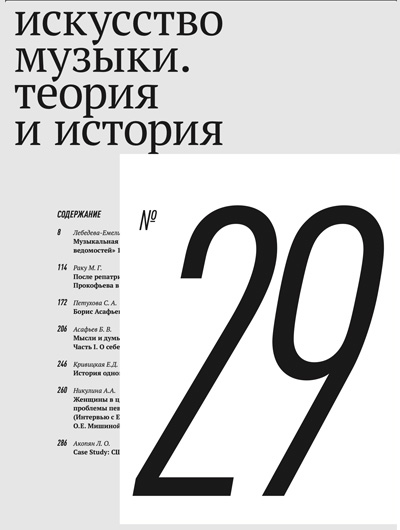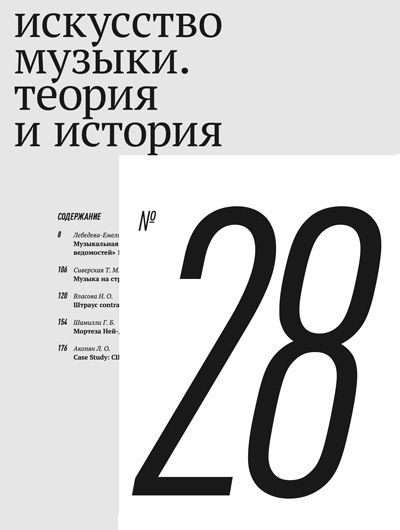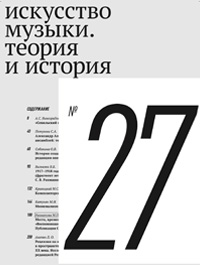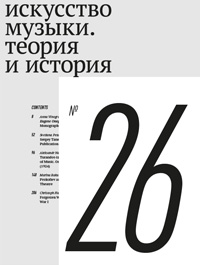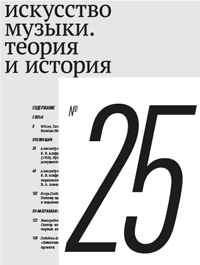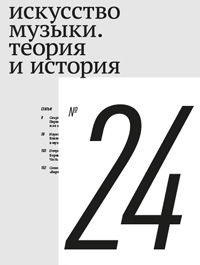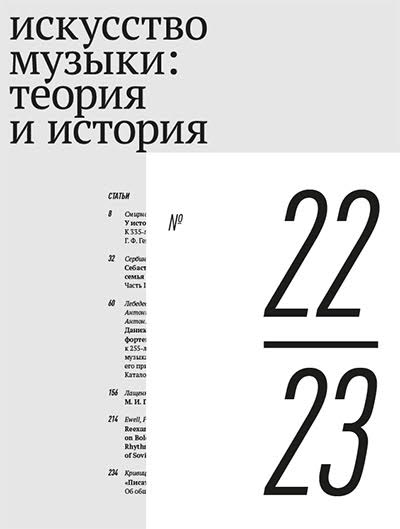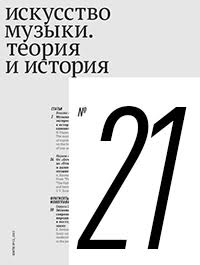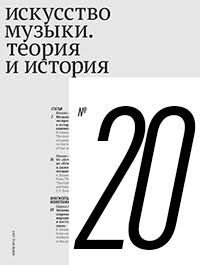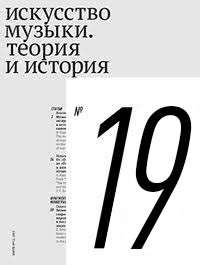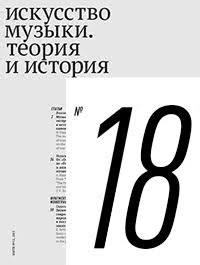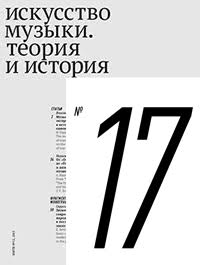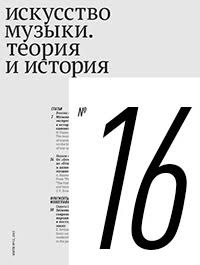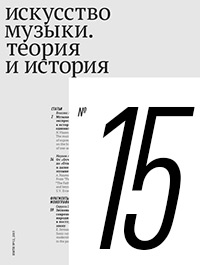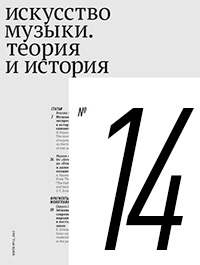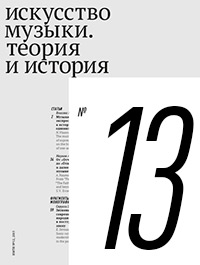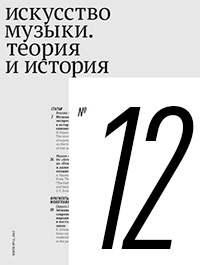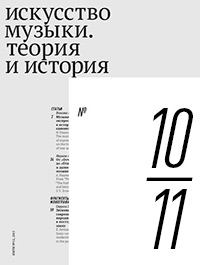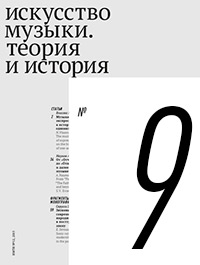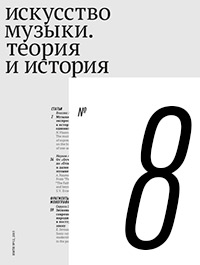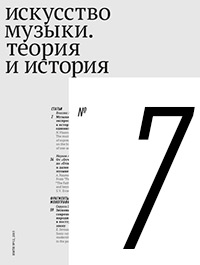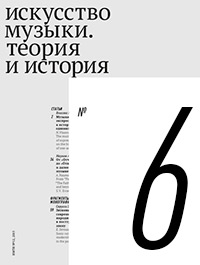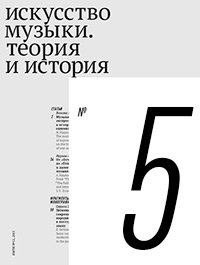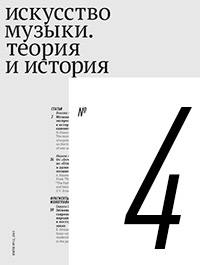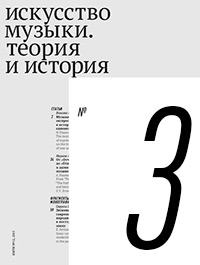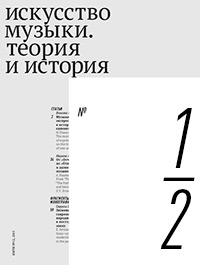2016 ¹ 15
The texts included in the present issue of the journal ‘Art of Music. Theory and History’ cover a number of different subject areas. The article of Sergey Tïshko (Kiev) deals with some special aspects of the methodology of music studies. Svetlana Lashchenko’s essay reconstructs an episode from the professional biography of A.M. Gedeonov, an outstanding Russian opera and theatre manager of the 19th century. The Israeli scholar Yuliya Kreynina (Julia Kreynin) discusses the reception of Mahler’s legacy in the Jewish State. In Yuliya Oparina’s article, the theme of the musicality of poetry is developed on the example of several settings of a short poem by A. Blok. Karine Dzhagatspanian (Jaghatspanian) from Armenia characterizes a new work by Krzysztof Penderecki (composed 2015). Marina Rakhmanova introduces a number of previously unpublished letters of N. Rimsky-Korsakov’s librettist Vladimir Belsky to the members of the composer’s family. Finally, Antonina Lebedeva-Emelina reviews recent doctoral dissertations on the European music of baroque and classicism defended at the Moscow Conservatoire.
In this article, the author once again proposes an argumentation for his approach to the practice of commenting upon verban and musical texts. The ways for contemporary modifications of the well-known method of ‘slow reading’ and for its transformation into the method of ‘reading with stops’ are characterized. The viability of the author’s concept of commentary is proved on the materials related to different spheres of musicology and musical-cultural studies (facts from the biographies of Glinka and Pushkin, Rakhmaninov’s treatment of ancient sacred tune in his Vespers, a key moment in the creative biography of the pianist Horowitz, etc.); it is shown, in particular, that the author’s concept allows to find new meanings in the musicians’ texts.
The article deals with the previously unknown episode from the history of Russian horn music and the role played in it by A. M. Gedeonov. The European itinerary of the Russian horn orchestra’s 1830s tour is reconstructed for the first time; the information about the terms of the musicians’ contracts is provided. The importance of A. M. Gedeonov, I. N. Utermark and P. M. Kozlov as the tour’s initiators and organizers is shown. The performers’ concert artivities, the programmes of their concerts, as well as the attitude of the European audiences to Russian musicians and the Russian art of horn playing are analyzed.
The article traces the evolution of the reception of Mahler’s music in Mandatory Palestine and Israel, from the initial attitude, generally rather restrained, conditioned, in particular, by ideological and religious contradictions within the Israeli society, through the tendency to conceive Mahler’s art as a peculiar symbol of the reborn State of Israel. A special attention is devoted to the works of contemporary Israeli literature whose subject matter is related to Mahler’s music.
The article is devoted to the issue of poetic melodiousness, in particular, to the analysis of melodic meaning of A. Blok’s free verse. It is assumed that being formally closer to prose, Blok’s free verse is essentially a poem and, moreover, it is poetry to the full extent. The peculiarities of the ‘musicalization’ of free verse’s poetic intonation are shown on the examples of three composers’ settings of the poem ‘It’s night. The town is still…’ (by A. Raskatov, A. Buzovkin, G. Banshchikov).
The article is dedicated to Penderecki’s Psalm 3 for choir a cappella – a piece composed in 2015 specially for the centenary of the Armenian Genocide in Ottoman Empire.
The article deals with dissertations in musicology defended at Roman Nasonov’s class at the Moscow Conservatoire. All the three works under review explore European music of Baroque and Classicism: Antonenko E. Baldassare Galuppi’s Church Music: Issues of Study and Performance (2013); Zhdanov V. Sacred Concerto in the Oeuvre of North German Composers of the Second Half of the 17th Century (2015); Nogovitsïna K. Secular Vocal-Instrumental Concerto in the Oeuvre of Biagio Marini and His Northern Italian Contemporaries (2016). All the three dissertations contain musical transcripts; all can be easily characterized as excellent pieces of scholarship.
Publication of letters by the librettist of Nikolay Rimsky-Korsakov’s late operas, Vladimir Belsky, who after the revolution of 1917 emigrated to Yugoslavia, to the composer’s sons who lived in Leningrad (1933–45), supplemented by documents related to Belsky’s life and work.
